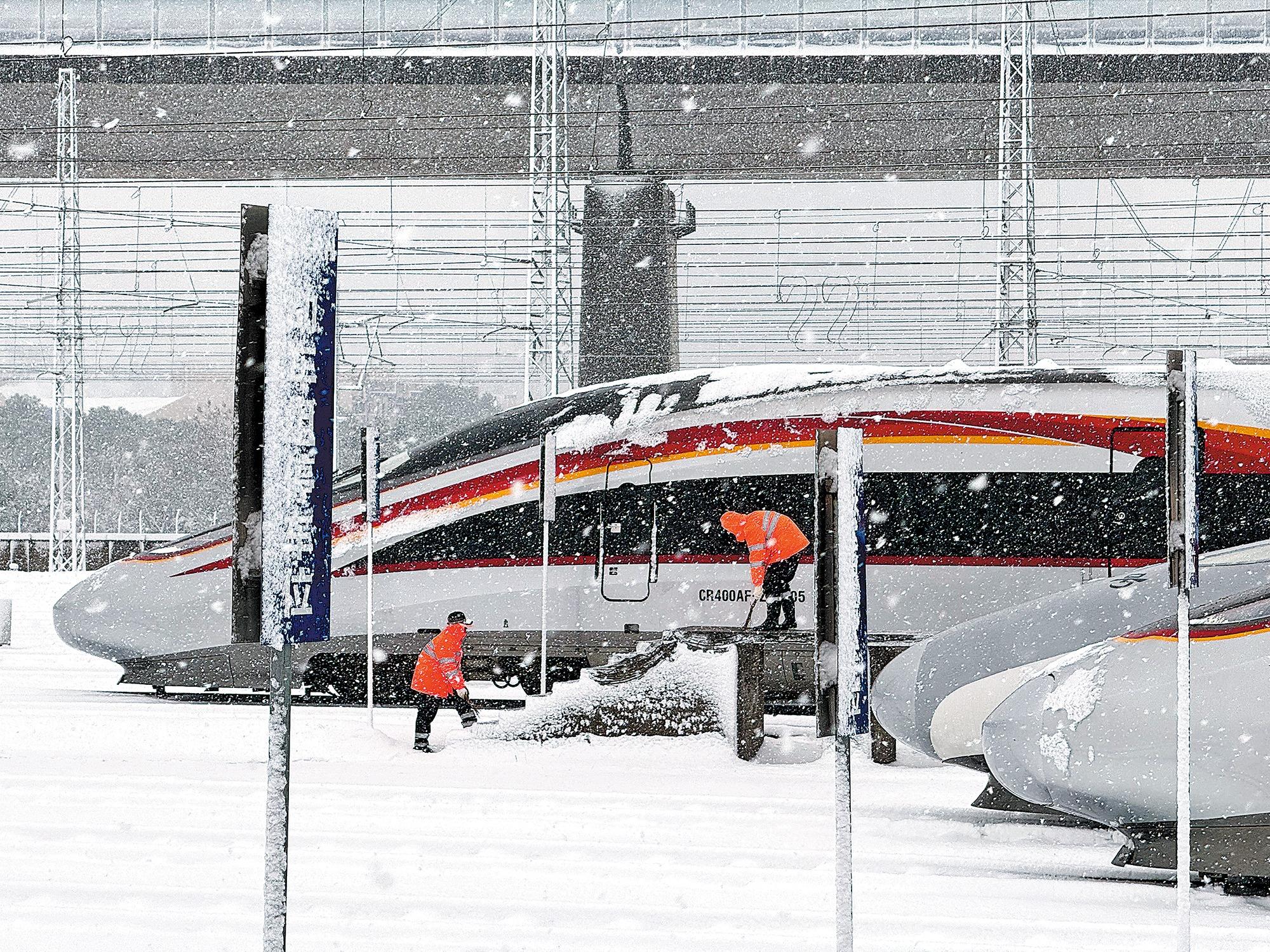 Workers clear snow and ice from high-speed trains at a railway station in Nanchang, Jiangxi province, on Jan 22, 2024. (XIAO YAO / FOR CHINA DAILY)
Workers clear snow and ice from high-speed trains at a railway station in Nanchang, Jiangxi province, on Jan 22, 2024. (XIAO YAO / FOR CHINA DAILY)
Zhang Ge, a media worker in Changsha, Hunan province, spent more than two hours to get to her office on Monday morning. She had to resort to public transport rather than use her car, as her driveway was blocked with fallen branches.
Despite leaving home at 7:30 am, an hour earlier than usual, Zhang experienced significant delays due to the heavy snowfall and the huge number of people traveling by bus and subway. And it took her half an hour to cover the 1-kilometer distance from the destination station to the office.
"I was half an hour late for a meeting. Many of my colleagues were also late, and the meeting was suspended for an hour," she said.
The sweeping cold air hovering in the central and eastern areas of the country has led to steep temperature drops.
Many regions, such as Chongqing municipality, Hunan and Jiangsu provinces and even the northern area of southern China's Guangdong province, have witnessed the first snow of this year and transport disruption.
The National Meteorological Center issued a yellow alert for snow and blue alerts for the cold wave and wind on Monday morning, raising the alert for snow and lowering that for the cold wave. In China's four-tier weather warning system, red is the most severe, followed by orange, yellow and blue.
With the cold wave moving south, meteorologists have continued to warn of blizzards, low temperatures and strong winds, and local governments have taken prompt measures to ensure road and traffic safety.
As of 8 am on Monday, 170 sections of road and 1,304 toll stations were closed in 17 provincial level regions, including Hunan, Hubei, Yunnan and Guizhou, due to snowfall and icy road conditions.
To ensure the safety of tourists during the extreme weather, the management bureau of Juzizhou, or Orange Isle, a popular travel site in Changsha issued a notice on Monday morning to limit the maximum number of visitors to 30,000 a day and ban traffic in the site.
As a popular tourist spot for winter skiing, the Alpine grassland tourist area of Bailihuang in Yichang, Hubei province, has prepared sufficient rescue supplies and drawn up comprehensive emergency plans.
Xu Man, the area's operating director, said that snow removal work starts at 3 am to ensure road safety, and visitors are urged to leave the area at 2 pm.
"Although no tourists have been stranded so far, we have prepared sufficient basic supplies, such as steamed buns and boiled water, to prevent emergency situations," said Xu, adding that the area also has 80 metric tons of snow-melting agent, three salt-spreading trucks, one emergency truck and 100 pairs of anti-skid chains.
Ningbo, a coastal city in Zhejiang province, has issued a strong wind warning to ships in port and those passing by. Inspections have been conducted of passenger ferries to prepare for the cold tides and gales, and 19 waterway passenger routes have been suspended since 10 am on Monday.
Li Menghan contributed to this story.
Contact the writers at zoushuo@chinadaily.com.cn


